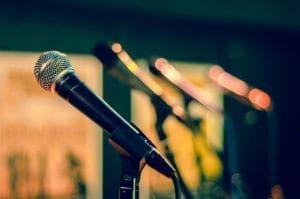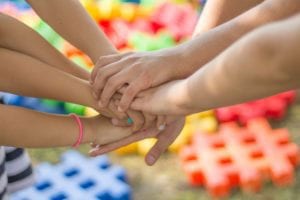January has been designated as a time to bring awareness to alternating hemiplegia of childhood!
Alternating hemiplegia of childhood is extremely rare, with about 1 in 1,000,000 reported cases; therefore it’s important to shine a spotlight during its awareness month.
Let’s take a deeper dive!
What is AHC?
Alternating Hemiplegia of Childhood is a rare neurological disorder that develops in childhood, most often before the child is 18-months old.
The disorder is characterized by recurrent episodes of paralysis that involve one or both sides of the body, multiple limbs, or a single limb. The paralysis may affect different parts of the body at different times and may be brief or last for several days. Oftentimes these episodes will resolve after sleep.
There are both benign and more serious forms of the disorder.
What are Symptoms of AHC?
Children with alternating hemiplegia exhibit a wide range of symptoms. These include:
- Tonic attacks (lack of muscle tone)
- Dystonic posturing (stiffening of extremities)
- Ataxia (lack of coordination when performing voluntary movements)
- Nystagmus (fast uncontrollable movements of the eyes that may be side to side, up and down, or rotary)
- Ocular motor abnormalities (eye disorders)
- Developmental delays
- Seizures
Up to 50% of children with AHC develop “true seizures” sometime during the course of their illness.
To learn more about AHC, click here.
Alternating Hemiplegia of Childhood Foundation
The AHC Foundation’s mission is to “find the cause(s) of AHC, develop effective treatments and ultimately find a cure, while providing support to the families and children with AHC by funding research to accomplish these goals.’
The Foundation has been raising funds for its gene therapy project, helping the movement to find a cure for AHC.
To learn more about their gene therapy project, click here.
The Foundation is also committed to fostering community for those affected by AHC. Whether it’s social media, other rare disease organization and affiliates, or their own community resources, they work hard to help those in the AHC community feel less alone.
Click here for more information!
_______________________________________________________________________________








